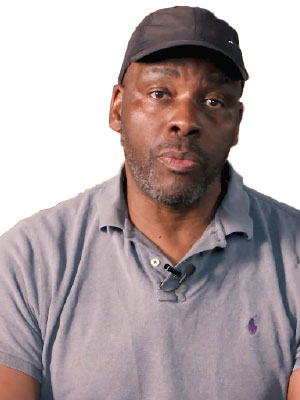
Why churches should invest in their minister's development
“College never prepared me for this” has been a common refrain among ministers - by Tim Fergusson
A Triumph Herald, the small family car first built in 1959, has terrible rear suspension. It uses a swing-axle design. If the driver turns sharply one way and then the other, the inside rear wheel for the first manoeuvre – bear with me, there’s an illustration in here somewhere – arcs downwards so that when it becomes the outside rear wheel on the second manoeuvre, it is tucked under the body of the car. This results in a dangerous loss of grip and a possible visit by the car’s back end into the undergrowth. If, like me, you were training to be an automotive engineer in 1989, you wouldn’t want to discover, as I did, that your lecturer’s career highpoint had been the design of the Herald’s suspension thirty years before.
My point is that there is a limit to what you can glean from a person whose thinking and experience has failed to develop in line with changing times. Which is one reason why it is in
everybody’s interest that we support the Continuing Ministerial Development of our ministers. It is in ministers’ own interests, of course, to remain fresh in their learning, attentive to God, accountable to others, connected with the wider Baptist family and open to review and feedback. But their development is also absolutely in the interests of the churches and mission settings they serve.
This has been starkly demonstrated over the last 18 months. “College never prepared me for this,” has been a common refrain among ministers, as churches
expected the sudden development of ministers in all sorts of new areas, the most obvious being technical proficiency with digital platforms.
So, what if this expectation continued, but was softened to look more like ongoing encouragement?
For this article is not aimed at ministers. If you are a minister, I hope you have happily embraced the concept of CMD. It’s aimed instead at those of you who aren’t ministers – at churches and church leaders. Because with your investment in your minister’s CMD, they and you will be enriched, not just in the crisis, but year in, year out.
What does this investment look like? It begins with encouragement, time and money.
-
Encourage your minister to read, go on retreat, meet with colleagues, join a learning community, play their part in wider Baptist life, and so on. Show an interest in their growth and especially in their well-being.
-
Allow them time for these activities. Don’t demand they spend every hour in direct service of the church, but give them room to flourish.
-
Offer them a budget for the costs associated with CMD. We recommend churches put aside £500 a year for their minister’s development costs, in addition to paying for their attendance at an annual Association ministers’ conference and, at least from time to time, at the Baptist Assembly. (We have made grants available this year for ministers in the least affluent settings and hope to do so again in 2022.)
But even better, if you are part of a church’s leadership team, you could make a commitment to develop together – please see the accompanying story from Winston Bygrave for an example of this.
I think I can reasonably promise that your minister and your church life will be the better because of this support for development. I am privileged to have pastored two churches that have encouraged mine. There is simply no question whatsoever in my mind that the refreshing of my ministry through the practice of CMD helped to bring new life and even new direction to those churches. It is the same as for all successful investments – we receive back with interest what we initially sacrifice.
So, please, if you are a church member, deacon, elder or leader, invest in your minister’s development. Because ministry is always moving on.
As is suspension design, by the way. Though my lecturer may not have been there to see it, Triumph designed a solution to their terrible rear suspension in the 1960s. Mind you, tragically, they declined to implement it until the next decade because they deemed it too expensive… a lesson for us, surely?
Click here for a
brief explanation of the CMD framework.
One minister's CMD journey - by Winston Bygrave
On entering Baptist ministry, the concept of ongoing development was familiar to me. During my 25-year teaching career, all teachers had been duty bound to pursue continual professional development (CPD) as part of being an effective teacher.
In ministry, West Hendon Baptist Church (WHBC) from its very beginning demonstrated their commitment to contribute to my continuing ministerial development. They covered the cost of my ministerial training at Spurgeon’s College, and have since paid for my attendance at our Association’s annual ministers’ conference, as well as my regular attendance at district ministers’ fellowship and events.
Such commitment to CMD is important for any church wishing to remain spiritually vibrant. It is expressed by allowing a minister the opportunity for ongoing learning and supportive accountability from outside. It contributes to the minister’s spiritual and intellectual benefit, and also to his or her self-care and effectiveness in their calling, ‘to equip the saints for the work of ministry, for building up the body of Christ’ (Eph 4:12).
But at WHBC our training budget extends beyond my own ministerial development to the development of our diaconate, and the congregation. We have an annual 24-hour leaders’ conference every October, in which both the diaconate and potential leaders enjoy relevant leadership training away, at the church’s expense. This ongoing leadership programme provides us with future leaders and charity trustees when our current leaders have served their relevant terms. It reflects our belief that church funds are not simply to be stored away and spent frugally on church maintenance. Rather, they are the provision of the Lord to be used to develop all aspects of ministry and mission within the local church.
If churches expect CMD of their ministers and then allow their ministers both the time and a budget to pursue it, we have a chance of developing effective teams. This in turn will change the culture of our local Baptist churches into places in which the ‘whole body, joined and held together by every supporting ligament, grows and builds itself up in love, as each part does its work’ (Eph 4:16).
Click here to
download a pdf version of this article
 |
Tim Fergusson is Baptists Together Ministerial Development Adviser |
 |
Winston Bygrave is minister of West Hendon Baptist Church and London Baptists Regional Minister |
Photos:
Elion Jashari & Christian Bisbo Johnsen on Unsplash